- Home
- Chris Wraight
The Path of Heaven Page 14
The Path of Heaven Read online
Page 14
‘Probably.’ Eidolon looked thoughtful. ‘But how far have we been elevated now, do you think? To slay a primarch… That would disturb the equilibrium.’
Konenos said nothing. Eidolon was entitled to fantasise – he’d probably earned that with the kill-tally he’d reaped out on the docking-plates. Of all of them, all those gifted with psychosonic hell-weapons, he was by far the most proficient.
And so, who knew? Perhaps he was even right. Perhaps Fabius had indeed made him a match for a Legion progenitor. Or maybe that was just the old hubris, placed in a new vessel.
‘We have reports from other raids,’ Konenos said.
‘I know them,’ replied Eidolon, disinterestedly. ‘Some we won, some we lost.’
‘We blooded them deep.’
‘Surely, and yet I deem their heart was not truly in it. Tell me, do you know the name Herevail?’
‘Capital world of the Telgam subsector. In counter-compliance for two months. Now in the final stages of reduction. Why do you ask?’
‘What is there, on Herevail?’
Konenos had to think. ‘Medium-grade industrial output. It was populated, and there were plans to raise regiments. Beyond that–’
‘Yes, yes, so dull, so much I already know. It was their real target, you know this? They were prepared to surrender Kalium, all to protect their attack there. They knew more than we did. It was our world, one we owned, and we missed something.’
Konenos frowned. ‘I can send scrutiniser teams.’
Eidolon laughed lazily. ‘By the time they get there, the Scars will be long gone. You know them.’
‘Then we go after them.’ Konenos felt a last spike of combat-chems flare up at the thought. ‘They are running, lord. We can cut them down as they flee.’
‘You are not the first to counsel this. Take a look.’
Eidolon tossed a slate at Konenos, who caught it one-handed. It was a standard command-tablet, used for storing astropathic interpretations. The runes on its crystal surface were in two levels of cipher, then disguised further with references from Chemos mythology. The dream-scryers who had taken this message would be dead by now – any transmission from such a source would have been very carefully protected.
It took him a moment to unlock the content. ‘The Warmaster,’ he said eventually. He left unsaid his immediate response. So he takes more interest in our doings than our own gene-father.
‘Interesting, is it not?’ remarked Eidolon. ‘The Lord of Death hastens towards us. Somehow, Lupercal has got it into his head that we would work well with the Fourteenth Legion. I do not really think that likely, do you?’
‘Come, my lord, this is what you wanted,’ said Konenos, studying the command-scripts closely. ‘Sanction to take on the Fifth Legion entire. With the Death Guard, it could be done.’
‘I had sanction before. I am not some witless menial, nor a Son of Horus, to be commanded by that warp-swollen abortion.’ Eidolon’s gaze kept shifting over to the gauze-layers, as if he had buried something behind them that intrigued him. ‘So I am not inclined to follow this command. I have had my fill of barbarians and wish to find other souls to torment. Do you not enjoy it, when we toy with Ferrus’ sons? They die so slowly, and in such rage.’
Konenos was about to reply when the great doors at the Sanctum suddenly slammed open. The body of a blood-masked door-guard skidded through the gap, his weapon knocked from his grasp. Konenos whirled around, grabbing his own bolt pistol. All around the Sanctum’s margins, legionaries levelled bolters.
A lone figure strolled in, clad in the armour of the III Legion, no weapon in his hands. He went helm-less, exposing the sculpted features of the Chemosian aristocracy. A pair of ice-blue eyes surveyed Eidolon’s court with cool contempt.
‘And now,’ Eidolon murmured, ‘we have this to torment us.’
‘My lord!’ Ravasch Cario called out, stepping around the struggling door-guard and striding up to the throne. ‘I had heard it said that the Soul-Severed still prosecuted the war. End my confusion, and tell me why you are not already in the void.’
Eidolon gazed at the intruder, intrigued. Slowly, those around the hall’s edges relaxed their grip on their weapons, though muzzles remained angled at Cario’s head.
‘A Palatine Blade,’ Eidolon said. ‘A singular honour. But where is your troupe, prefector? Surely you did not mislay them en route.’
Cario came to stand before Eidolon, and Konenos watched him all the way. The blademaster’s bearing was immaculate, his poise impeccable, but the absence of flesh-improvement was disappointing. It spoke of a lack of ambition, and fate had a way of punishing that level of pride.
‘You sent us a tithe of what we asked for,’ Cario accused, not bothering to acknowledge Konenos. ‘If you had answered the summons, I would be here at the head of a salvaged supply convoy.’
‘Summons,’ said Eidolon. ‘Is that what you call it?’
‘We have warp-wakes. You have means of divining them.’ Cario’s fury was artfully contained, and as cold as marble. ‘Let them go now, and let go the last of your paltry honour.’
‘Now, then, brother. I did that a long time ago.’
Cario glared up at the throne. ‘Find them.’
‘You have bolters trained on you from every angle,’ said Eidolon. ‘Prefector, I do not think you are in a position to give many orders.’
Cario had moved before the last syllable left Eidolon’s mouth. Konenos opened fire immediately, missing by a fraction. All the others fired, also too slowly – the post-combat narcotics in their blood, the lethargy, it all combined.
Cario reached the throne in a single leap, boosting up from the dais and swinging his drawn blade up at Eidolon’s fleshy neck. He pressed the sabre’s steel into the white-grey skin, clamping down on the Soul-Severed’s shoulder with his free gauntlet.
‘No further!’ Eidolon cried, addressing his troops, now clustering towards the throne. Konenos, who had trained his pistol on Cario’s exposed temple, held his finger against the trigger.
By then the Lord Commander Primus was breathing heavily. His eyes sparkled. ‘By the gods, you are fast.’
‘And you are grown fat.’ Cario’s eyes stayed narrow. ‘Death-shrieks will not be heard in the void. There is still a need for the blade.’
‘So you have proved. But withdraw now, please – against expectation, I find I do not wish to kill you.’
‘Then end this sham. Order the pursuit.’
‘I do not enjoy being instructed at the point of a sword.’
Watching the theatrics unfold, Konenos allowed himself a dry smile. Every indication spoke to the contrary.
Slowly, Cario withdrew the blade’s edge. He pulled back from the throne. The anger remained, though, and he did not sheathe the charnabal sabre.
‘For shame, brother,’ said Eidolon, his sutured cheeks flushing as he adjusted his position. ‘There was a time when we would debate our strategy with fine words.’
Cario looked distastefully up at the silks, the twisted slaves, the puffs of incense. ‘There was a time when words were enough.’
‘But what makes you suppose I have any means of finding the Khan?’ Eidolon was still enjoying himself. ‘He has a reputation, you know.’
Cario stepped down from the dais and strode over to the lengths of silk. With a twin strike of his blade, one-two, he slashed the curtains aside.
Behind them, suspended on golden chains far above the chequerboard floor, hung a side of meat. Once it had been more than that – a superhuman warrior clad in ivory ceramite. Now it was mere flesh and sinew, quivering, kept alive by pain-machines clamped to its brain-stem, its spine, what remained of its face. A fixed, silent scream was locked on its skinless face, looped through the coils of agony amplifiers. Psychically attuned plates had been set on either side of its temples, each one feeding cables that loo
ped up to the incense-clouded ceiling. Despite its lack of eyes, it sensed the removal of its silk shroud, and twitched.
‘Learned much yet?’ Cario asked.
Eidolon shrugged. ‘We have made a start.’
Cario finally scabbarded his sabre. He turned back to the throne. ‘Do this thing, and word shall go to every Palatine fraternity in the sector. If you grow weary of the game, consider at least the aesthetics – we can do this to all of them.’
Eidolon eyed the prefector hungrily then. That was the key to him, Konenos realised: the Lord Commander Primus no longer fought for the cause, for the primarch, even for himself. He fought to keep himself amused.
‘The Death Lord burns through the warp,’ said Eidolon. ‘He has been ordered to join with us. Did you know this?’
Cario fixed his blue eyes on his nominal master. ‘It changes nothing.’
Eidolon smiled. ‘It changes everything.’ He turned to Konenos. ‘And you would be in accord with this, I take it?’
‘Always.’
‘Yes, always.’
Eidolon sat back in the throne, his eyes fixed on Cario. ‘I needed something to stir my blood again. Perhaps you are it.’
The prefector turned away, unconcerned. ‘Whatever you need,’ he said, his voice low. ‘Just get me close enough. I ask nothing more.’
A fleet muster was a critical time.
For most of the years-long campaign following Prospero, the White Scars had been dispersed. Chondax had been an aberration – a rare instance of the entire Legion operating as one. As the forces of the Warmaster had pressed their advantage, the V Legion had reverted to type – splitting up, forming autonomous battalions, using their speed and void craft to stay one step ahead of destruction.
Now new orders had been given out – the ships were pulling back, squadron by squadron, battling their way across the turbulent aether-seas to join with the command group in the Aerelion System. Those that had already made it now hung in high orbital anchor above Aerelion III, a giant of indigo gas-swathes and violent electrical storms.
Large-scale void war was always hard to prosecute with any certainty. In the absence of any reliable detection systems working over supra-system scales, fleet commanders had to judge enemy positions via a mix of warp-wake soundings, uncertain espionage, psychic reading, or blind luck. Galactic wars were not fought to conquer contiguous territorial zones; they were battles over the thousand points of light amid the endless dark – fortress-worlds that could be attacked from any direction at any time. The existence of ‘fronts’ and ‘salients’, though widely referred to by strategos, was in the strictest sense inaccurate, since physical void extension was only erratically mapped to the underlying currents that governed the immaterium. Before Horus had launched his run to the Throneworld, no such assault, not even at Ullanor, had truly deserved to be described as a single battlefront. Only the Warmaster’s advance, through its sheer scale and audacity, carried the volume of destruction necessary to amount to a coherent line of ravaged worlds, and even then the gaps were far larger than areas of compassed, controlled space.
Nonetheless, placing all major Legion assets in one place was a risk, particularly as the enemy outnumbered the White Scars many times over. The Khan had studiously avoided massed engagement throughout the years of open war, knowing that it would end him. Only as the net closed in and the policy of targeted raids became less effective did the strategy change.
The process was perilous from beginning to end. Astropathic messages could be intercepted, encryptions deciphered, physical comms broken. It would have been safer to linger at Aerelion for just a few days, but it would take far longer than that to assemble the sundered Legion warships, during which time their location was always liable to be uncovered.
A policy of misinformation had been triggered alongside the true communications effort, something made easier by the difficulty non-Chogorians had in understanding Khorchin inflections. False gatherings were seeded into astropathic screeds, incorrect names mingled with true instructions. Suicide squads had been sent out to far-flung locations to lend credence to dummy musters, each trajectory carefully rigged to resemble the real thing.
Now, all that could be done had been done. The ordu was drawing itself back together, preparing for the exercise that would see it fulfil its vows or destroy itself in the attempt.
Every serviceable frigate had been placed on the perimeter of Aerelion’s gravity well, and an ever-shifting sphere of fleet pickets now patrolled far into the system reaches. All approaches to the Mandeville point had been heavily mined, save for the one clear path left to allow ingress and egress for ships with the requisite code-chains.
From a private observation chamber at the summit of the Swordstorm’s command tower, the architect of the policy observed his fleet coming into coherence. He watched the sleek lines of the Qo-Fian slide past the immense shadow of the Lance of Heaven, with the Tchin-Zar some way off, having only broken the veil two hours previously. Every battleship bore heavy damage. Those that had recently made the warp-stage from Kalium were the worst, and were now surrounded by heavy shells of void scaffolds, over which swarmed Legion repair teams and Mechanicum overseer details.
No lumens had been lit in the Khan’s chamber. Two candles burned, each one scented with oils from Chogoris – one was iryal, the anointment given to those about to head into battle, the other gagaan, that smeared on the foreheads of those who had died. Between the candles were the two pieces of Qin Xa’s dragon-helm, his blood still stained across the inside curve.
When that helm had been brought before the primarch, he had said nothing. He had sat on the command throne of the Swordstorm’s bridge, the pieces in his lap, his dark eyes focused on the metal, as if by boring into them he could somehow reverse the fate of its owner.
None had dared disturb him for orders, and the flagship’s crew had held silent station, breath caught, waiting.
Eventually, the primarch had lifted his severe profile from the broken helm and given the order he had put off for too long.
‘No more. Order the muster.’
And so they had made for Aerelion. The Master of the Horde had withdrawn to his private chambers, and none had broken the sanctity of his meditation-space.
It was the same space in which he had received his Father the last time the two of them had been alone together. Back then, they had both stood before the great crystalflex ports, watching as the night curve of Terra had rolled slowly beneath them. They had exchanged few words prior to separation, for words were ever hard to come by between them. They had skirted around the issue that divided them – the Imperial Truth – for neither had wished to part on poisonous terms.
And so the Khan’s most lasting memory of his gene-sire – more profound than the great displays of power on Ullanor, more lasting even than the first, glorious descent to the plains of Chogoris – was of a very human awkwardness.
He had attempted to speak of the Swordstorm’s majesty, to highlight what a superlative ship his artisans had made with what they had been given. ‘Nothing is faster,’ he had said. ‘Nothing serves you better. We have poured our hearts into this, and made it perfect.’
His Father had understood that. He had appreciated the ingenuity of the changes. More than any other, He comprehended the ancient technology at the heart of His Imperium’s war vessels, for His genius lay behind the ancient templates, just as it lay behind all else that was significant in the expanding galactic empire.
And yet, He had not praised His son for his labours, for that had never been His way. His proud face, so hard to perceive clearly, so ineffable and so severe, had never moved from consideration of the stars beyond the armourglass.
‘And even these,’ the Emperor had said, ‘are fleeting.’
What had that meant? There was no good in asking, for the Master of Mankind never explained. At the time, the Khan had
taken the remark to be a reference to the Swordstorm’s speed, but later on he could no longer sustain the illusion. Everything in his Father’s demeanour had suggested impatience – a desire to move on from what had been done, to what might yet be done. The Emperor had been talking about something else, something to come after what He had built amid the ruins of Terra’s past, something that had not been revealed.
Now, when all had been cast into the flames, the Khan returned to that moment more and more. There were nights when it gave him hope, for there was always the chance that the Emperor had somehow foreseen this great rupture, and that it meshed with His designs in some way – and such would not be completely impossible, for His genius in the beginning had been untouchable, accepted even by those who had fought futilely against His rise.
But he could not sustain that hope for long. With every defeat, every astropathic-tiding of another ravaged world, it became clear that the great designs had been derailed, and that Horus had acted for reasons that were entirely his own. For all the centuries in the planning, the Emperor’s vision had proved fallible, open to assault, apt for destruction.
What were You intending? the Khan asked himself, watching the shadows of his great war fleet preparing themselves. You were never a fool. You knew the risks of leaving the war to Your sons. There must be something else.
Perhaps Magnus had known. Perhaps those who had been closest to the Emperor in counsel – Dorn, Guilliman, Fulgrim – had done so as well. The Khan had never been close. He and his Father had been different in all things, servants of different creeds, with as much innate sympathy as the nomads had always had for the settled. If there was a reason for the Emperor’s decisions after the Triumph, then the White Scars would not have been told of it. They would have been let loose, just as they had always been, to take the war to the outer margins of the empire, to be forgotten until they were needed again, feared, disregarded, as unwholesome as Russ’ berserkers but without the predictability.
So I fight for a Father who I never loved, against a brother that I did. I defend an empire that never wanted me against an army that would have taken me in a heartbeat.

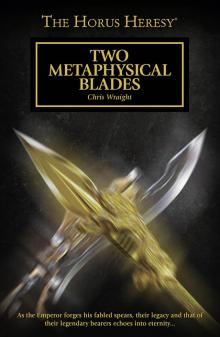 Two Metaphysical Blades
Two Metaphysical Blades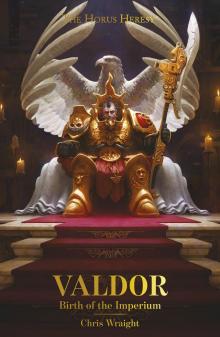 Valdor: Birth of the Imperium
Valdor: Birth of the Imperium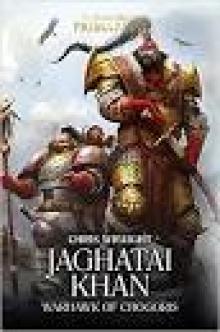 JAGHATAI KHAN WARHAWK OF CHOGORIS
JAGHATAI KHAN WARHAWK OF CHOGORIS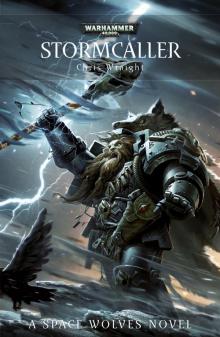 Stormcaller
Stormcaller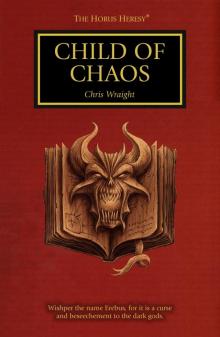 Child of Chaos
Child of Chaos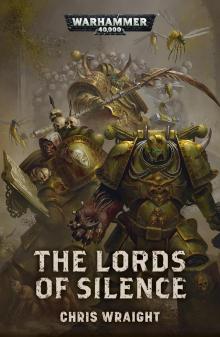 The Lords of Silence
The Lords of Silence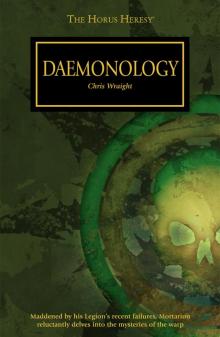 Daemonology
Daemonology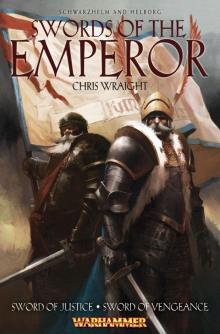 Swords of the Emperor
Swords of the Emperor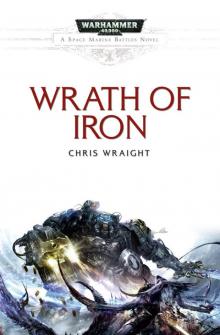 Wrath of Iron
Wrath of Iron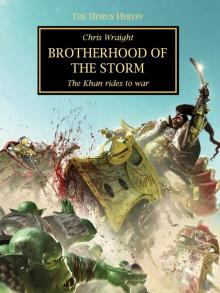 Brothers of the Storm
Brothers of the Storm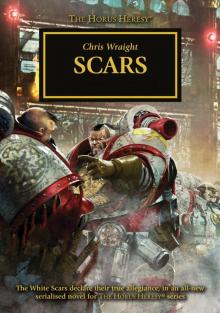 Horus Heresy: Scars
Horus Heresy: Scars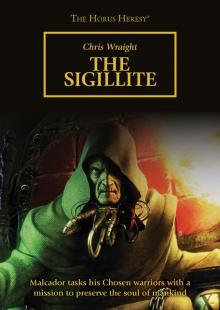 The Sigillite
The Sigillite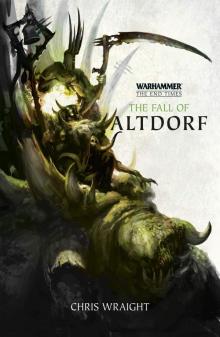 The End Times | The Fall of Altdorf
The End Times | The Fall of Altdorf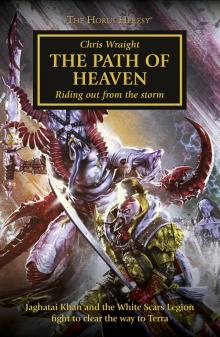 The Path of Heaven
The Path of Heaven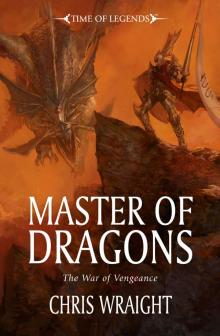 Master of Dragons
Master of Dragons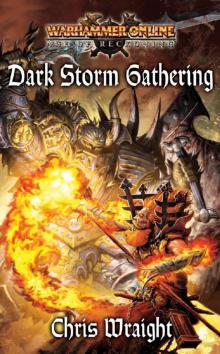 WH-Warhammer Online-Age of Reckoning 02(R)-Dark Storm Gathering
WH-Warhammer Online-Age of Reckoning 02(R)-Dark Storm Gathering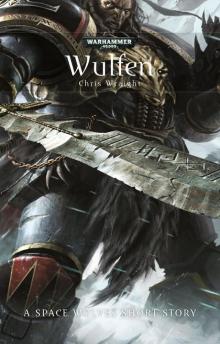 Wulfen
Wulfen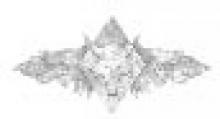 Battle Of The Fang
Battle Of The Fang Onyx
Onyx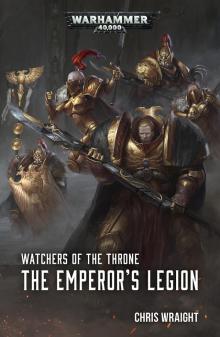 Watchers of the Throne: The Emperor’s Legion
Watchers of the Throne: The Emperor’s Legion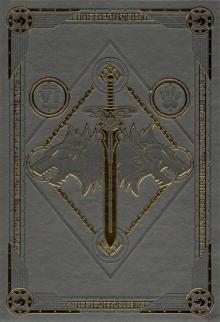 Leman Russ: The Great Wolf
Leman Russ: The Great Wolf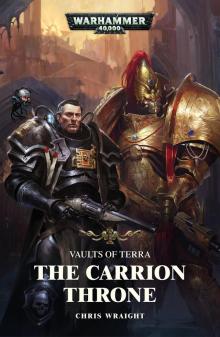 Vaults of Terra: The Carrion Throne
Vaults of Terra: The Carrion Throne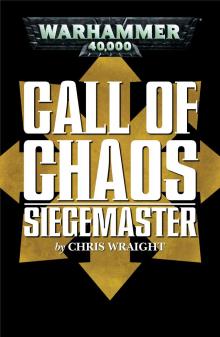 Siegemaster
Siegemaster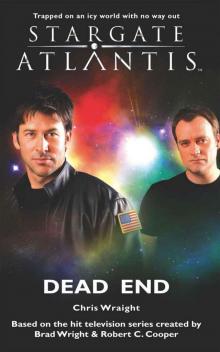 STARGATE ATLANTIS: Dead End
STARGATE ATLANTIS: Dead End Scars
Scars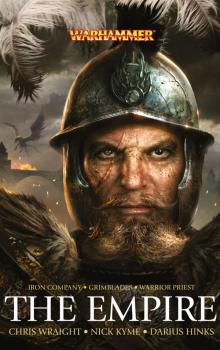 The Empire Omnibus
The Empire Omnibus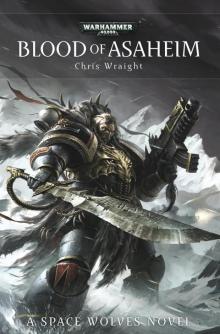 Blood of Asaheim
Blood of Asaheim